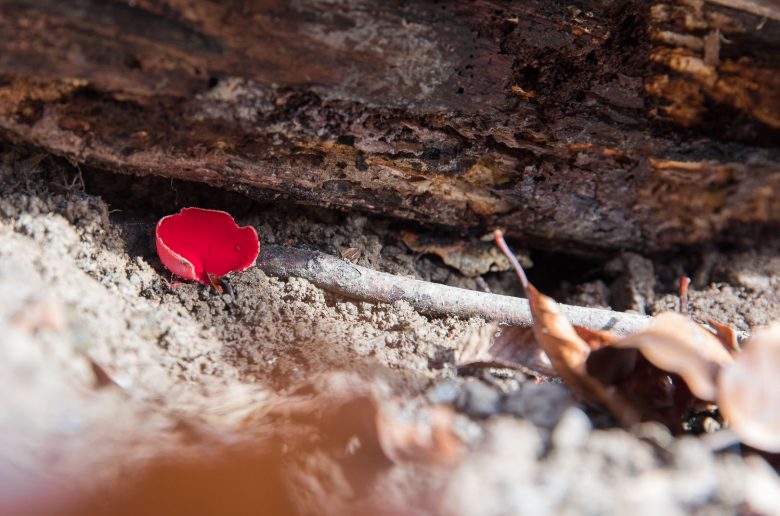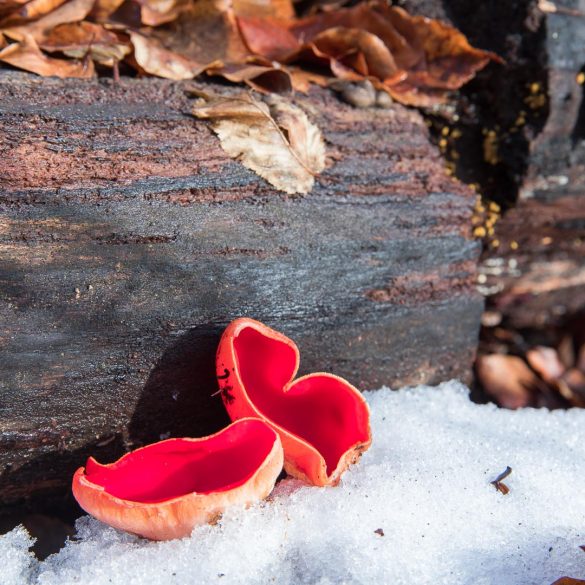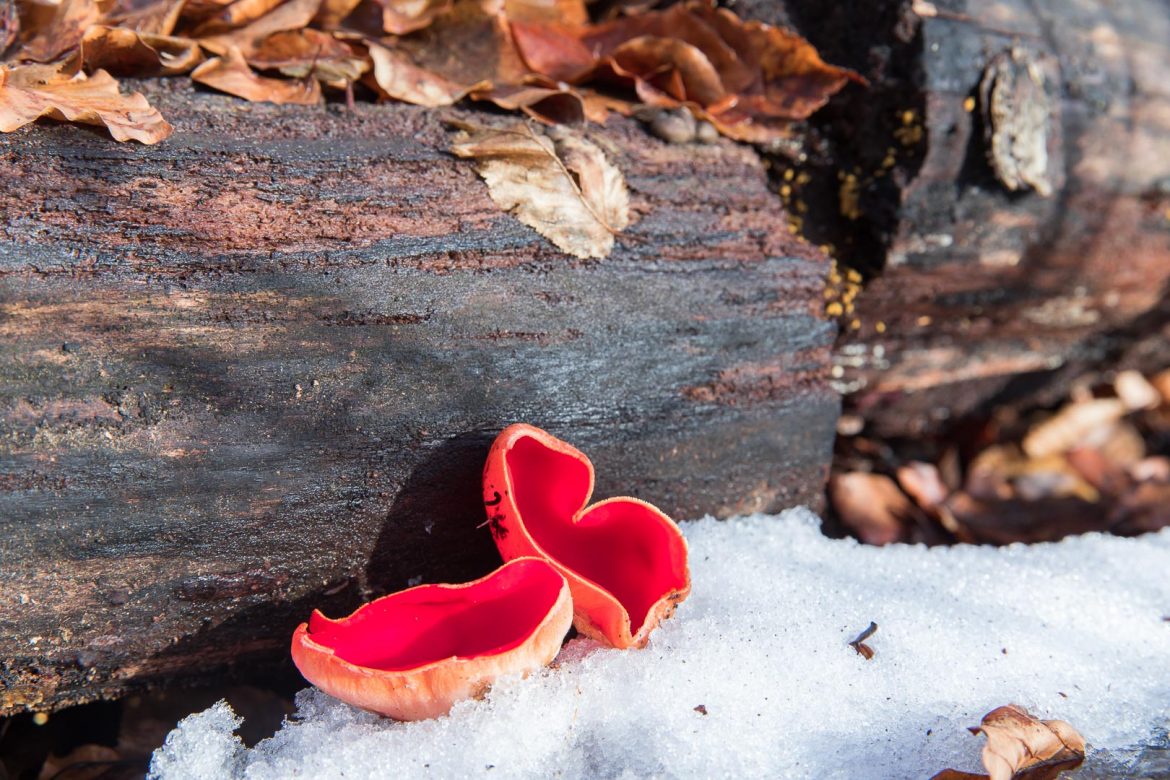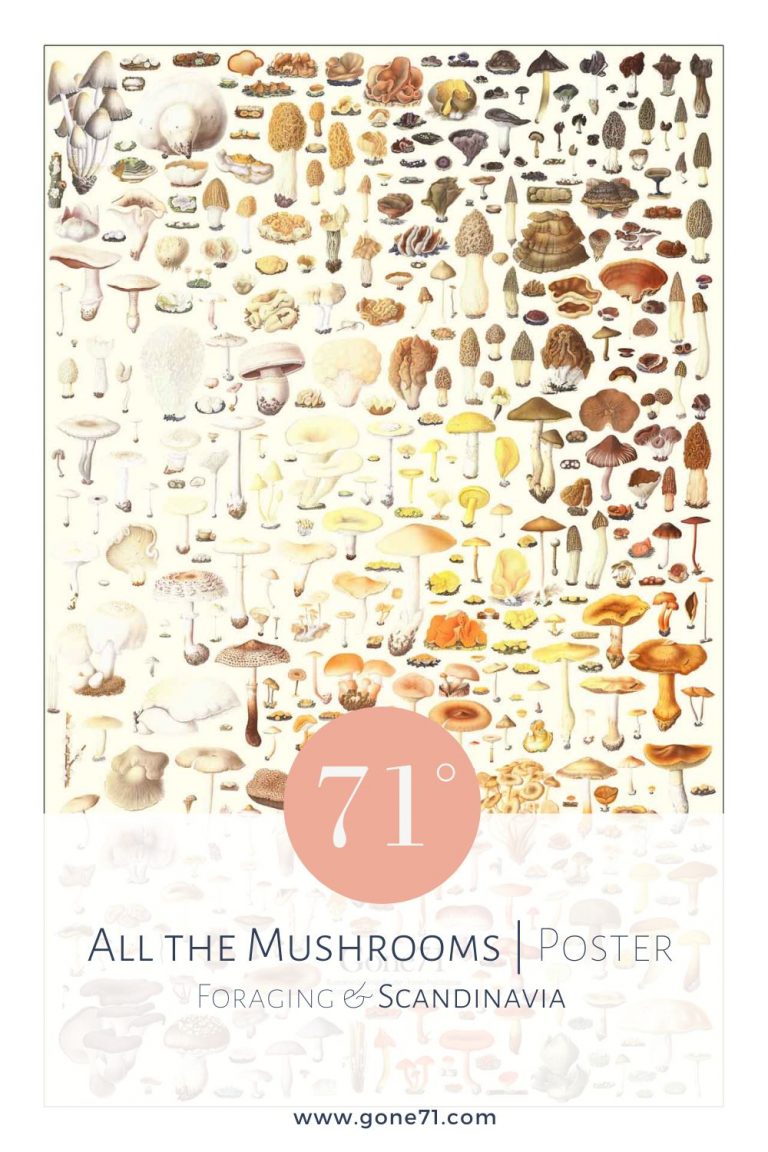swe.: Scharlakansvårskål | nor.: Skarlagen vårbeger | fin.: Punamaljakas | dt.: Prachtbecherling
Many guidebooks consider the scarlet elf cup, like the almost identical ruby elf cup (Sarcoscypha coccinea), as a modest culinary experience or even inedible (due to taste). We on the other hand, think highly of this mushroom and are of the opinion it should get a chance.
Appearance
diameter: up to 8 cm, stem 2-3 cm
months: winter – may
colour: whitish outer layer, intense red inside
habitat: alluvial forests, on deciduous branches, alders, willows, aspens and others. decomposer (saprophyte)
characteristic: cup shaped fruiting body, intense colour
The precise distinction between different elv cups such as S. austriaca and S. coccinea is difficult and sometimes can only be determined microscopically. Collectors rarely differentiate here, whereby “Scarlet eleven cup” is usually used synonymously for both cups. In central and northern Europe, however, S. austriaca is more dominant and more widespread.

In the kitchen
In recent years scarlet elf cups, have attracted more and more public attention, mainly because of their photogenic properties. As winter mushrooms, they stand out with their appearance in the monotonous winter landscape. In the foraging kitchen the intense scarlet color makes it a real eye-catcher as a supplement to various dishes. It can be used well as a coloring element in salads and are even better for stuffing with various fillings.
Unfortunately, the underside of the mushroom is often dirty and requires some patience when cleaning. In some regions, this mushroom is very rare and should therefore only be collected in small quantities.
Their taste is rather inconspicuous mushroomy-earthy taste. The thin-walled elf cups have a very unique texture that cooks well. Those who do not focus their expectations on the classic mushroom properties may actually find a taste for this outstanding mushroom.
Recipe
Depending on the season, the mushrooms can be filled with wild garlic pesto and served raw. There are no limits to creativity and anything you like to eat is suitable as a filling. If you prefer to cook the mushrooms, you can also chop the fresh wild garlic leaves and use the eleven cups to make a delicious sauce for pasta.
Find some ideas for wild garlic recipes here
↓↓↓

Ingredients
- olive oil
- butter
- 30g wild garlic
- 150g elv cups Salt
- Pepper Parmesan
- 15g pine nuts
- 350g tagliatelle
Instructions
- Wash the wild garlic, drain and chop into small pieces.
- Roughly crush the pine nuts with a mortar and pestle.
- Melt butter in a pan.
- Toss in the wild garlic and pine nuts and leave to simmer for 3 to 4 minutes over a low heat.
- Then increase the heat and add the elv cups. Large specimens can also be cut into strips.
- Depending on the size of the pieces, simmer over medium heat for about 8 to 10 minutes.
- At the same time, cook the tagliatelle al dente.
- Drain the pasta and add to the pan and mix well.
- Season with olive oil, salt and pepper and serve with grated parmesan.
Notes
Alternatively, the scarlet elv cups can also be filled with wild garlic (pesto) and served as a topping with mashed potatoes.
Find some inspiration in other mushroom recipes
↓↓↓
Learn more about poisonous mushrooms and mushroom poisons here
↓↓↓



